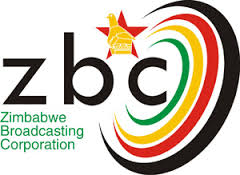Story by Tichaona Kurewa
THE Government continues to expand its technology inclusion bracket with the latest initiative benefiting schools in Matabeleland North Province following a donation of information communication gadgets this Saturday.
The Government, through the Postal and Telecommunications Regulatory Authority of Zimbabwe (POTRAZ), is making use of the Universal Service Fund (USF) to finance provisions of digital services across the country, especially in rural areas.
The services include the provision of base stations to ensure digital connectivity across the country and school computer laboratories, among others.
This Saturday, the government handed over thirty computers to Ndlovu Secondary School in Hwange District much to the delight of the pupils.
The International Telecommunication Union and the Post and Telecommunications Union said Zimbabwe is making commendable efforts to bridge the digital divide.
“Zimbabwe is doing very well, it has made an effort thanks to the enabling environment that has been created by the government and its agencies.
“When you compare it with other countries in the region, it is doing very well because it’s not the least developed country. If you look at the gap between rural and urban areas is narrowing, we still have a gap but its narrowing and Zimbabwe is also focusing on girls in ICTs, the gender gap in ICT is also becoming narrower which is a good achievement,” said International Telecommunication Union, Telecommunications Development Bureau, Director, Dr Cosmas Zavazava.
“We have just launched a laboratory with thirty computers and this is what we are doing throughout the country where we are launching these school laboratories so that our children and our children are not left behind,” said POTRAZ Director General, Dr Gift Machengete.
The Government highlighted the importance of computer labs in improving the quality of education in the country.
“This computer lab is going to assist our children in their learning journey to write exams. In writing their exams, as you know, we have CALA, in some instances, it demands that children must have computers to use, but CALA doesn’t necessarily need computers because it’s a project that uses the environment in which you are.
“If you are in an environment where there are no computers you need to come up with an innovation to try and come up with a project that can be done without necessarily having a computer,” said Dr Evelyn Ndlovu from the Minister of Primary and Secondary Education.
To date, the government has equipped more than 1 000 schools with computer laboratories, as the drive to bridge the digital gap between urban and rural communities gathers pace.




